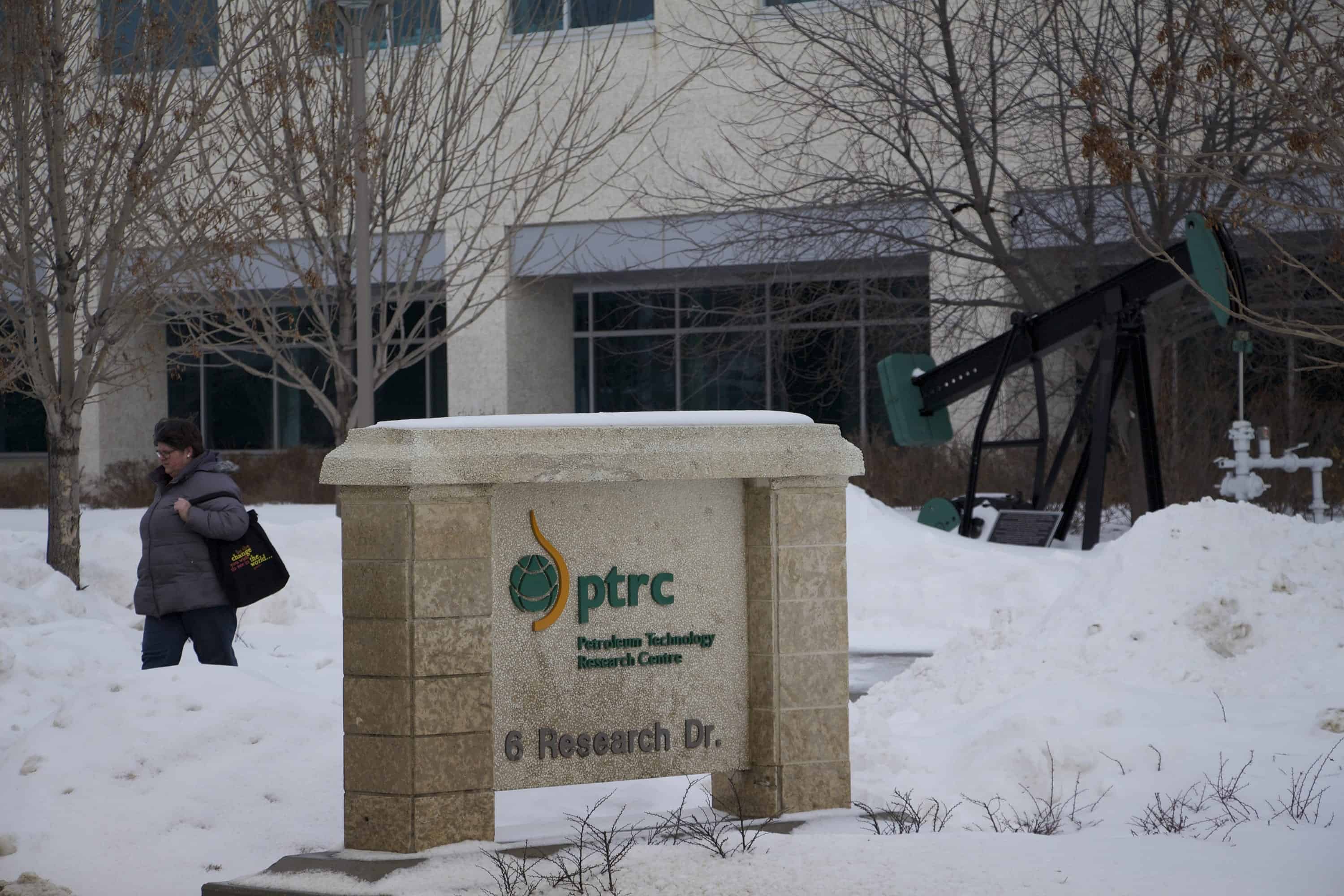
Miscommunication to blame; research still a success
By: Michael Chmielewski and Alec Salloum – editor-in-chief and news editor

Despite the misunderstanding both parties are happy with the results of the research. / Alec Salloum
Due to a breakdown in communication, the University of Regina had to return “approximately $1.5 million” in unspent research funds.
In the Dec. 9, 2014 Hansard report for the Standing Committee on Public Accounts, U of R President Vianne Timmons said that “we signed a large research agreement with a group that assigns research grants to our own faculty members. And in that agreement it said that if there were unspent funds, it was to return to the funding agency.” However, not every researcher was aware of these terms.
In the Hansard the President went on to say, “[t]his was a system failure on our part as a university. We now have a control in place that will make sure that’ll never happen again.”
Money was returned to the funding agencies, which included the Petroleum Technology Research Centre (PTRC), and the federally and privately funded Business Led-Networks of Centres of Excellence (BL-NCE).
In a Feb. 11, 2015 statement sent to the Carillon by the U of R’s external relations, “[t]here were 29 sub-agreements signed by the University and PTRC and the master agreement that was signed by PTRC and BL-NCE, which the University signed an addendum to.”
This master agreement, officially known as a network members agreement, “was signed by the university, not the individual members and one of the statements in that agreement, it said basically, any unspent funds by March 31, 2013 have to be returned,” explained PTRC’s Communications Manager Norm Sacuta. The exact wording of the agreement, under the heading “Unspent Funds”, states, “By August 1, 2013, the consortium will return the portion of the Grant not committed or expended on April 1, 2013, to the Granting Agencies”
The program ended in 2013, but Sacuta said, “because they [the BL-NCE], realized final reports needed to be done, [they] granted an additional year to complete final reports and to spend the last amounts of money that might have still been outstanding and to complete the final parts of the research.”
Our previous article investigating research at the U of R
But even with an extension this money was not spent. In the Feb. 11, 2015 statement mentioned above explained that, “As of March 31, 2014, the total amount of unspent funding in 29 STEPS projects was approximately $1.5 million and per the agreement, all unspent and unallocated funds were returned to the funding agencies, including BL-NCE in Ottawa and the PTRC. This was a change from previous agreements with PTRC that the University did not effectively communicate to researchers.”
“Hats off to the researchers,” said U of R Vice President, Research Dave Malloy. “There is no funding that was misspent, there was no mismanagement of funding, the research was delivered on time, under budget and the only issue here was that unlike in other contracts we were stipulated to return unspent funds.”
To clarify, the research was completed to the PTRC’s satisfaction, and External Relations explained that, “it is important to note that no funding is missing or unaccounted for… all generally accepted financially accounting and reporting procedures were followed during the process.”
Essentially, previous research agreements had stated that if the allotted budget for research was not entirely spent the researchers would be able to keep the additional funds. This has served as an incentive for researchers to keep spending to a minimum.
“We’re quite happy with the research at the U of R,” said Sacuta.
The U of R will now be more careful to ensure that a similar situation doesn’t happen again.
“We’re looking at these contracts with much more of a fine toothed comb, as well we’re in the process of purchasing software that will provide computer generated deadlines for these sorts of things” Malloy explained. “Frankly, we’re behind in having this sort of internal management software. Part of it probably is that the universities research activities have grown faster than its infrastructure and we’re really in catch up mode.”
This software would eliminate the human error element of keeping track of hundreds of thousands of dollars in research funding. Researchers were not made aware of the exact details of the funding in their contracts, which is largely to blame for the misunderstanding.
U of R external relations explained that there was “no significant impact” on graduate students, because the U of R returned a slightly smaller amount to PTRC, as the “University ended up returning approximately $1.2 million in unspent funds as part of an agreement with PTRC for the University to retain some funding to be used for graduate student support.”
The returned funding was used for a research program called STEPS, which stands for Sustainable Technologies for Energy Production Systems. STEPS, a program that concluded in 2013, conducted research into “enhanced oil recovery,” according to PTRC’s Communications Manager Norm Sacuta.
The Carillon reached out to the professors involved in STEPS research. As the Carillon went to press late Tuesday night, some professors declined to comment, others didn’t reply to our requests for interview, and the Dean of Engineering and the U of R representative on the PTRC board Esam Hussein deferred comment to PTRC, citing a conflict of interest that he did not elaborate on even repeated requests for clarification.









